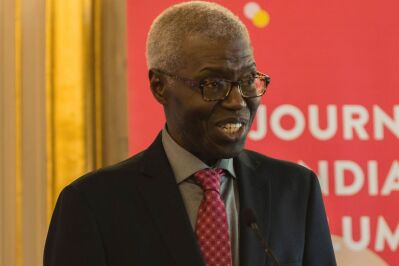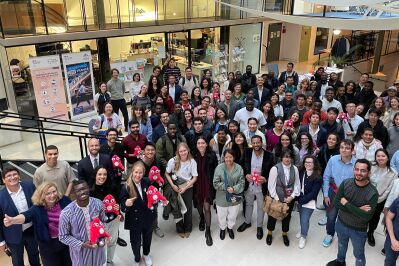 News
News 
Alumni and “grandes écoles”: the spirit of solidarity as fundamental purpose
The “Conférence des Grandes Ecoles” (Bureau of Grandes Ecoles) presents on its website a study including several articles dedicated to alumni, and including opinions from various institutions directors.
The “Conférence des Grandes Ecoles” (Bureau of Grandes Ecoles) presents on its website a study including several articles dedicated to alumni, and including opinions from various institutions directors.
The subject of the Grand Angle study, common point of all articles the Conférence des Grandes Ecoles (CGE) has dedicated to alumni, is mutual aid and solidarity. According to the facilitator of the Alumni Workgroup of the CGE opening this study, “in such an unusual and fairly turmoiled context of the Covid-19 crisis, the subject was obvious”. According to the CGE representative, “building (or maintaining) friendly relations between ex students, developing the spirit of solidarity in promotions and between generation is the fundamental purpose of alumni associations”.
Seven “Grandes Ecoles” (NEOMA, HEC Liège, Grenoble INP, ESTP Paris, ESA Angers, EM Normandie, EDHEC) included in the Alumni Workgroup of the CGE, created in early 2020, participated in this study by providing articles and stories as diverse as passionate in their mission of network facilitators.
Solidarity and employment
Mutual aid, the common thread running through all the stories, is first and foremost as expressed by ESA Angers, which declares that it is “listening to young people to implement the development of services” and which organises numerous actions, with its alumni networks, to help students, particularly in terms of employment. Faced with the current difficulties of the job market, EDHEC and its alumni association have launched the “Programme Entraide Recherche Emploi”, a monitoring programme that has already helped over 600 students and young graduates to benefit from follow-up and “sound advice”.
Intergenerational solidarity, valorisation and international development
For its part, HEC Liège focuses more broadly on intergenerational effects and cites among its “priority challenges”, cultural awareness of “giving back to the community”, in other words “the value of philanthropy within the alumni culture”. In the same vein, also altruistic, Grenoble INP has chosen, thanks to its alumni network, to “carry high the colours of French engineers and scientists”. The school’s association has a clear objective: “to contribute to the quality of the training of engineers and scientists in France” and “to enhance their diplomas and promote these courses”. The same goal drives ESTP Paris, which wishes to further develop its alumni network internationally. Among the many initiatives taken in this direction, the school has considered the role to be played by foreign alumni in the professional integration of young graduates, in the reputation of the institution itself and in the solidarity between its alumni.
Prospective vision and major uniting objectives
NEOMA offers a prospective vision, and thinks that, today, “alumni network are now managed as start-ups”. The school guarantees that the period following the COVID crisis will be “the perfect opportunity to use the adaptability and flexibility of our alumni to serve the performance and business of members of our ecosystem”. Last, EM Normandie is the true illustration of the role of alumni clubs presented in the study, which are in the end all driven by three objectives: “uniting the network, support its members and promote the school”.
Two additional contributions enrich the study. The general introduction offered by the Alumni Workgroup of the CGE and the contribution to the discussion of the Alumni for the planet group that provide the conclusion to this study by presenting itself as the alumni network of alumni networks.
Promoting France as brand and the French soft power
In its introductory remarks, the CGE, which opens the study, rightly notes that alumni, “when they promote their school, the French model of Grandes Ecoles, the School’s brand at the same time as their diploma”, contribute “in their own way to the influence of France and its place in a highly competitive world”. However, the CGE questions, in particular, “the LinkedIn logic” which would represent “a form of disintermediation between students, alumni and employers and, in the long term, a direct competition for traditional alumni networks”.
Alumni for the planet and its webinar cycle
This is not a concern for the Alumni for the Planet network which, in its contribution, insists on its development which continues with 3,000 registered alumni, from more than 600 higher education institutions. A development that represents, according to the association, a “considerable leverage effect to meet the challenges of climate and environment”. The objective here is “to bring together a maximum number of higher education alumni, thanks to alumni associations, and to support them by helping them to connect and act together”. To this end, the association now offers “webinar cycles to accompany groups of alumni over several months and help them initiate concrete projects in their company, through experience sharing, thematic working groups, testimonials and action kits”.
To know more:
- Full study on the website of the Conférence des Grandes Ecoles (“Aval” section)
Photo credit: ©jackfrog - stock.adobe.com





Comments
You must be logged in to leave a comment. Log in